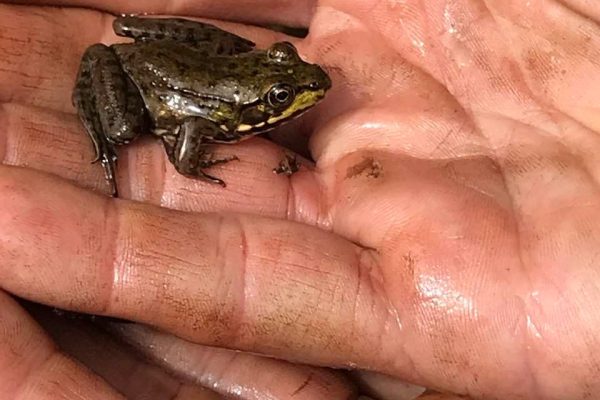Humanistic Judaism was founded as a congregational movement in 1963 by the late Rabbi Sherwin T. Wine, and has emerged as a stream of Judaism that enables people of any ethnic or religious background to cherish Jewish history, culture, and ethics without worshipping or praying to a supernatural being.
[Maror held up for all to see.]
[Take turns reading. Each person is invited to read a grouped set of lines or to pass.]
MAROR — מָרוֹר
Why do we eat maror?
Tradition says that this bitter herb is to remind us of the time of our slavery.
We force ourselves to taste pain so that we may more readily value pleasure.
Scholars inform us that bitter herbs were eaten at spring festivals in ancient times.
The sharpness of the taste awakened the senses
and made the people feel at one with nature’s revival.
Thus, maror is the stimulus of life,
reminding us that struggle is better than the complacent acceptance of injustice.
Leader:
As a blessing for the maror, let us all sing this song about striving to be fully human.
Then we will all take a taste of horseradish on a piece of matzah.
LIH’YOT ISH: TO BE FULLY HUMAN (Mishnah Pirkei Avot 2.6)
Hebrew:
בַּמָּקוֹם שֶׁאֵין אֲנָשִׁים
הִשְׁתַּדֵּל לִהְיוֹת אִישׁ
Transliteration:
Ba-makom she-ein anashim,
hishtadel lih’yot ish.
English:
Where people are less than human,
strive to be fully human.
DIPPING GREENS IN SALT WATER
MATBILIN KARPAS – מַטְבִּילִין כַּרְפַּס
[Take turns reading. Each person is invited to read a grouped set of lines or to pass.]
SALT WATER – Why do we dip our food in salt water two times on this night?
The first time, the salty taste reminds us of the tears we cried when we were slaves.
[Greens held up for all to see.]
KARPAS – Parsley and celery are symbols of all kinds of spring greenery.
The second time, the salt water and the green can help us to remember
the ocean and green plants and the Earth,
from which we get the water and air and food that enable us to live.
Leader:
Hebrew:
נְבָרֵךְ אֶת פְּרִי הָאֲדָמָה
Transliteration:
N’varekh et pri ha-adamah.
Everyone:
Let us bless the fruit of the Earth.
[Please dip your parsley into salt water two times and eat it.]
As an affiliate of the Society for Humanistic Judaism (SHJ), Machar is part of the national and international Humanistic Judaism movement. The International Institute for Secular Humanistic Judaism (IISHJ) is the educational arm of our movement, training rabbis and other leaders.










